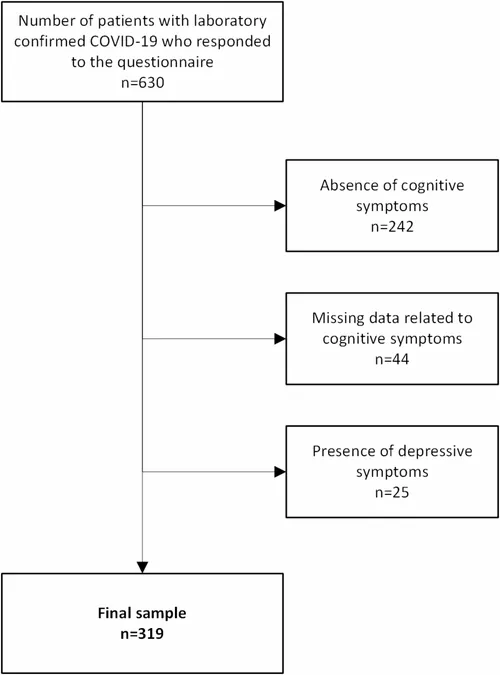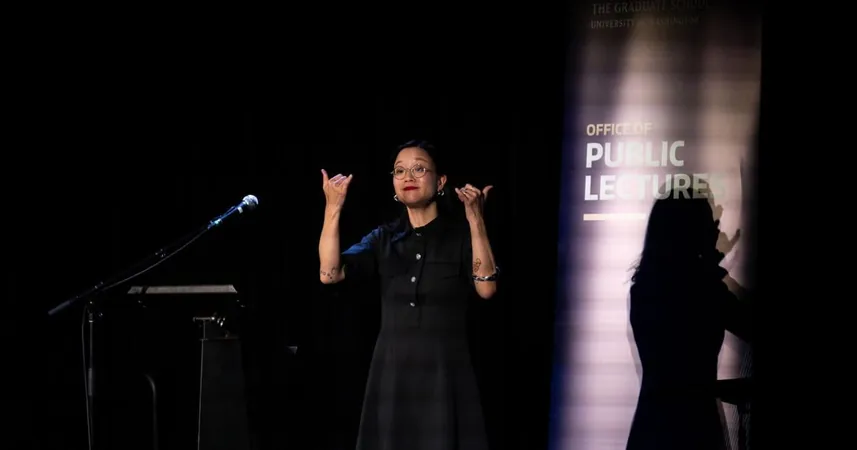
Shocking Findings: Cognitive Struggles Persist Long After Mild COVID-19 Infections
2025-04-18
Author: Jia
Study Overview: Uncovering Cognitive Struggles Post-COVID
A recent study from the Universidade Federal de Minas Gerais (UFMG) reveals a startling reality: many individuals who contract mild COVID-19 experience lingering cognitive issues long after their initial recovery, particularly among patients treated through an innovative telehealth service.
Who Was Included in the Study?
This research looked at participants diagnosed with COVID-19 from December 2020 to March 2022. Patients were carefully chosen based on their cognitive symptoms during the acute phase of COVID-19. Notably, those exhibiting significant depressive symptoms were excluded from the analysis to eliminate potential confounding factors.
Data Collection: A Deep Dive into the Symptoms
Data was gathered during Brazil's tumultuous COVID-19 waves. The second wave dominated by Delta and Gamma variants and the third, led by Omicron, contributed to a comprehensive understanding of the pandemic's effects on cognitive health.
The Role of Telehealth: Changing the Game
TeleCOVID-MG, a public telemedicine initiative, was pivotal during the pandemic, extending its services to residents of Minas Gerais and later to students and staff at UFMG. This program allowed for streamlined monitoring and support for those affected by respiratory symptoms.
Measuring Cognitive Symptoms: How The Study Worked
Patients were assessed using a structured questionnaire focusing on symptoms like memory problems, concentration difficulties, and more, 24 weeks after their acute illness. These assessments revealed a staggering 27.9% of participants continued suffering from cognitive symptoms far beyond the initial illness.
Profile of Patients with Prolonged Symptomatology
The study discovered that women and older patients were significantly more likely to experience prolonged cognitive struggles. Specifically, results showed that 72.1% of individuals saw their symptoms dissipate within 24 weeks, leaving a concerning 27.9% grappling with cognitive challenges well beyond that.
Cognitive Symptoms Explored: What Patients Are Facing
During the acute phase, nearly 79% reported concentration issues, followed by memory lapses and problems finding words. Alarmingly, while some symptoms showed improvement with time, others, particularly memory challenges, persisted in significant numbers.
What Factors Are at Play?
The study highlights the influential role of gender and the timing of infection: women were found to be 2.3 times more likely to experience extended cognitive symptoms after mild COVID-19, with infections during the Delta variant wave showing heightened risks.
Echoes of the Past: Unpacking Cognitive Impairment
This investigation marks one of the first of its kind in Latin America to scrutinize cognitive symptoms post-COVID over an extended period, underscoring a pressing public health issue. With previous studies also indicating a significant number of COVID survivors unfortunate enough to face enduring cognitive struggles, the need for targeted interventions is growing.
Conclusion: The Need for Awareness and Action
The findings are compelling: cognitive symptoms like memory loss and concentration issues aren't just fleeting after a mild COVID-19 infection; for some, they can be chronic. This ongoing challenge demands attention from healthcare systems and researchers alike, calling for innovative approaches to diagnosis and management.




 Brasil (PT)
Brasil (PT)
 Canada (EN)
Canada (EN)
 Chile (ES)
Chile (ES)
 Česko (CS)
Česko (CS)
 대한민국 (KO)
대한민국 (KO)
 España (ES)
España (ES)
 France (FR)
France (FR)
 Hong Kong (EN)
Hong Kong (EN)
 Italia (IT)
Italia (IT)
 日本 (JA)
日本 (JA)
 Magyarország (HU)
Magyarország (HU)
 Norge (NO)
Norge (NO)
 Polska (PL)
Polska (PL)
 Schweiz (DE)
Schweiz (DE)
 Singapore (EN)
Singapore (EN)
 Sverige (SV)
Sverige (SV)
 Suomi (FI)
Suomi (FI)
 Türkiye (TR)
Türkiye (TR)
 الإمارات العربية المتحدة (AR)
الإمارات العربية المتحدة (AR)